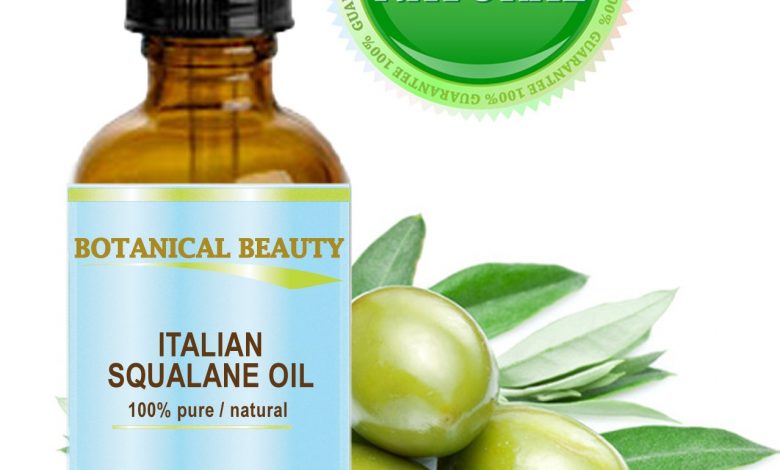
Newsgate360: Your body has a built-in system for moisturizing your skin, but it doesn’t always provide enough hydration, especially as you get older. This is why many people turn to external moisturizers.
One moisturizer worth taking note of is squalane. It mimics your skin’s natural oils, making it an excellent emollient. It’s also a natural antioxidant and has antitumor properties, protecting your skin from carcinogens.
Read on to learn more about squalane, including how it can slow down the signs of aging in your skin, and prevent breakage and split ends in your hair. We’ll also explain where it comes from and how it’s made.
Squalene (with an “e”) is a lipid produced naturally by your own skin cells. Unfortunately, the amount of squalene your body produces declines with age.
Peak production of this natural moisturizer occurs in the teen years, with production slowing down in your 20s or 30s. As a result, your skin becomes drier and rougher.
Squalene isn’t only natural in humans. The moisturizer is naturally present in olives, rice bran, and sugarcane. It’s also found and harvested from shark livers.Squalene must be hydrogenated to be included in skin care products.
Animal and plant squalene is too unstable to be used in skin care products. When exposed to oxygen, it can become rancid and spoil quickly.
Before it can be used in skin care products, squalene must be hydrogenated into squalane (with an “a”), which is a stable form of the molecule.
Hydrogenation is the process of converting squalene from an unsaturated oil to a saturated oil (squalane). Hydrogenation makes the oil more skin-friendly and helps increase its shelf life.
Hydrated skin is healthy skin. So, when applied topically, squalane has tremendous benefits.
Boosting hydration can help your skin appear more vibrant and healthier. The antioxidants in these oils and creams also fight skin damage and free radicals, which can both accelerate the aging process. According to researchTrusted Source, squalane is also a detoxifier.
Regular use can also boost collagen production, resulting in firmer skin. Apply the oil topically as directed on the product package.
Squalane isn’t only for the face and body. You can also apply the oil to your hair.
Moisturizing your hair can help increase shine and prevent breakage. Hair has its own natural oils. Yet, weather, age, diet, and heat damage can dry out locks.
Squalane can replenish your strands and protect your hair from further damage.
Place a few drops of squalane oil into the palm of your hand and massage into your hair to boost moisture before rinsing in the shower.
If you have acne-prone or oily skin, using the wrong skin care products can trigger a breakout or worsen blemishes. Squalane, however, is safe for all skin types.
It’s an excellent alternative if other oils are too heavy or greasy for your skin. Despite being an oil, it’s lightweight and noncomedogenic, meaning it won’t clog your pores.
It does penetrate pores and improve skin at the cellular level, but it doesn’t feel heavy on the skin.
According to researchTrusted Source, squalane has anti-inflammatory properties that can reduce redness and swelling.
While squalane won’t clog your pores, natural skin oils, dead skin cells, and bacteria can.
So before applying squalane to your face, use a gentle cleanser to clean out your pores. Also, exfoliate once or twice a week to remove dead skin cells.




